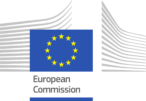On the eve of the United Nations Social Justice Day, trade unions, lawmakers and other key players gathered to reflect on the different dimensions of precarity and to come up with concrete proposals on how to tackle them.
Some key criteria to identify precarious work were defined. One thig was clear from day one: precarity is not a choice. The feeling of insecurity often referred to by workers is transversal to all precarity dimensions, from access to social security protection to effective interest representation.
The potential impacts of new legislative and non-binding initiatives, such as the 2019 Council Recommendation on Access to Social Protection, the 2019 Directive on Transparent and Predictable Working Conditions and not least innovative initiatives put forward as tools to mitigate the coronavirus pandemic, such as SURE, the Recovery and Resilience Facility or the many income support programmes for the self-employed were discussed and analysed in detail.
Joost Korte, Director General of DG EMPL of the European Commission, strongly emphasized that the fight against of precarious work remains a top priority for the European Commission – particularly in light of the Covid-19 pandemic. In his words “it is very obvious that those countries with a good coverage of collective bargaining do much better. (…) Access to social protection is key to protect workers against all kinds of risks”. After highlighting the recent initiatives, Mr Korte informed that the European Commission has proposed an additional 10M EUR package to support social partners.
CESI Secretary General, Klaus Heeger, highlighted that “while more countries formally guarantee more labour rights, less workers can exercise these rights, due to the rise of precarious work. Precarious work therefore a very serious threat to labour market regulation, and we have to tackle it – for the sake of the sustainability of our societies.”
The conference was divided into three panel: access to social security protection, EU labour law and interest representation.
While MEP Terry Reintke (Vice-President of the Greens/EFA) particularly highlighted the gender dimension of precariousness as well as the funds available to support youth employment, Ms Ilka Wölfle, President of the European Social Insurance, evaluated the potential impacts of the measures taken following the Covid-19 crisis on social security coverage in the long-term, and Paul Schoukens, Professor at the KU Leuven, analysed the content and possible influence of the Council recommendation on access to social protection on national social security schemes.
Regarding legislative loopholes, Sophie Robin-Olivier, Professor at the Paris University Panthéon-Sorbonne, and Sergio Galleano, a renowned labour law lawyer in Italy, shared their assessments of the EU directives on atypical work and the thereto related national and EU case law. According to both, a revision of these directives seems opportune. On behalf of the European Commission, Adam Pokorny, Head of Unit Working Conditions at the European Commission, dissected the recent EU initiatives aiming at further closing legislative gaps.
In the panel on efficient interest representation, Aurora Trif, Professor at the Dublin University, described the different strategies of trade unions to unionise atypical workers. In her view, the key element lies in convincing traditional membership of the advantages to open trade unions to new, atypical workers. Marcello Pacifico, President of Anief, described the endeavours of ANIEF to systematically denounce abuses in the application of the directives of atypical work, such as a complaint submitted to the European Committee of Social Rights at the Council of Europe – which was successful. And Henry Chango Lopéz, himself once a precarious worker and today leader of the Independent Workers Union of Great Britain (IWGB), described the activities of the IWGB to unionise and protect atypical workers. (Ironically, a few moments before his speech, the UK´s Supreme Court had ruled that Uber drivers are to be considered as workers.)
Sara Rinaudo, chairwoman of CESI’s working group on the future of work, concluded the conference by announcing the activities as a follow-up to the project. According to her, CESI should:
- promote and contribute to the implementation of the Pillar,
- follow-up on the implementation and the impact of the Council recommendation on access to social protection,
- support the adoption of the proposal on minimum wages and monitoring its transposal at national level,
- monitor the implementation of the directive on transparent and predictable working conditions,
- advocate a revision of the directives on atypical work and fight for their uniform and fair interpretation,
- share best practices among our members, and not least
- increasingly reach out to precarious workers.
